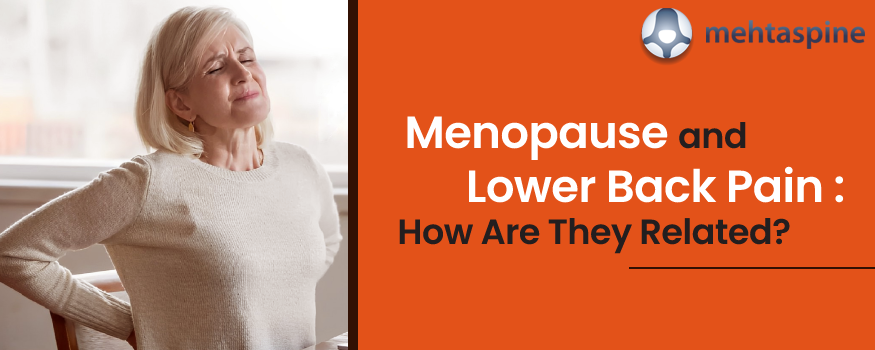Menopause and Lower Back Pain: How Are They Related?
Troubled sleeping, hot flashes, changes in libido and mood swings – menopause triggers a lot of uncomfortable symptoms for women. In addition, the women also report an increased incidence of back pain during and post-menopause.
So are lower back pain and menopause related? Yes, says the research. Let us know why in this blog here:
Depletion of Estrogen and Vitamin D – Impact on bone health:
Estrogen plays a prominent role in maintaining bone health in the human body. It slows the breakdown of the bone and encourage the activity of osteoblasts which are responsible for the growth of bone. Estrogen is also responsible for maintaining optimal health of collagen tissues (that make intervertebral discs).
Menopause significantly lowers the estrogen levels in women which does show its effect on the bone health of the women. Lowered estrogen levels increase the risk of osteoporosis in women which surge the risk of injury. Menopause also negatively affects the health of the intervertebral discs (collagen tissues), thus increasing the risk of degenerative bone diseases. Menopause is also found to lower the Vitamin D levels in the body which further deteriorate the body’s ability to maintain optimal bone health.
Dipping Vitamin D Levels Post-Menopause – How does it affect bone health in women?
Vitamin D is a fat-soluble vitamin that promotes health bone function. It is produced by the body after exposure to sunlight and is also found in dietary sources and food supplements. “It helps improve muscle and nerve sensitivity, promotes one and muscular strength and reduces inflammation. Most individuals, both men and women are often found to be deficient in Vitamin D. Menopause further dips the vitamin D levels in the body and this is not going to help either”, says back pain specialist in the UK, Mr Jwalant S Mehta.
Post-menopausal are at higher risk of vitamin D deficiency which increases the risk of developing lower back pain and even lumbar disc degeneration, according to the Chinese medical research that investigated the link between lower back pain and menopause. So menopause and the hormonal changes it brings about in the body negatively impact bone health and trigger degenerative bone diseases for elder women.
In addition to menopause, other reasons can also trigger back pain, on top of ageing. These causes include postural changes, incorrect exercise techniques, poor breathing and even incorrect movement patterns. All these causes can further act on top of the changes brought-in by menopause to further increase the risk of lower back pain and bone degeneration.
If you are a woman suffering from chronic back pain post-menopause, the best thing to do is consult the back pain specialist in UK who can provide you with a solid plan that can mitigate lower back pain and reduce the onset of bone degeneration. If you are in the UK and are looking for a back pain specialist, you can contact Children & Adult Spinal Surgeon in UK Mr Jwalant S Mehta


